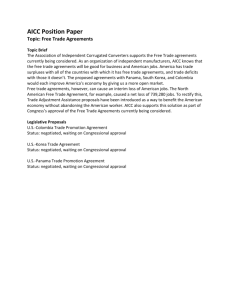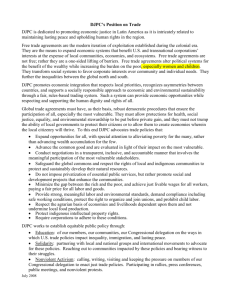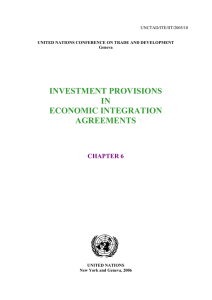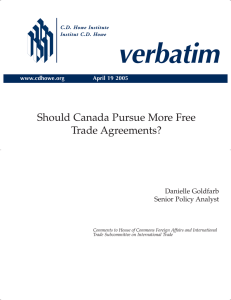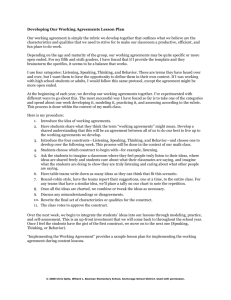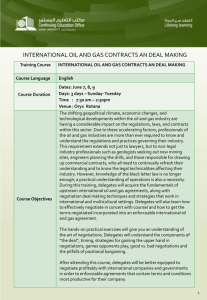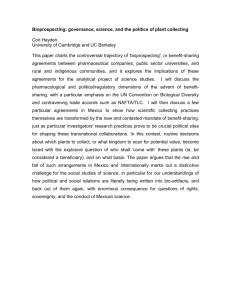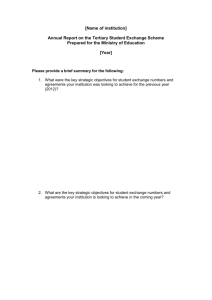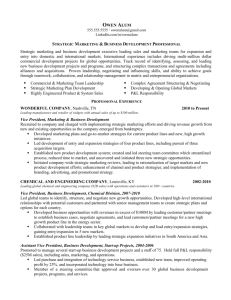1 TRADE PROMOTION AUTHORITY ACT OF 2013 SUMMARY The
advertisement
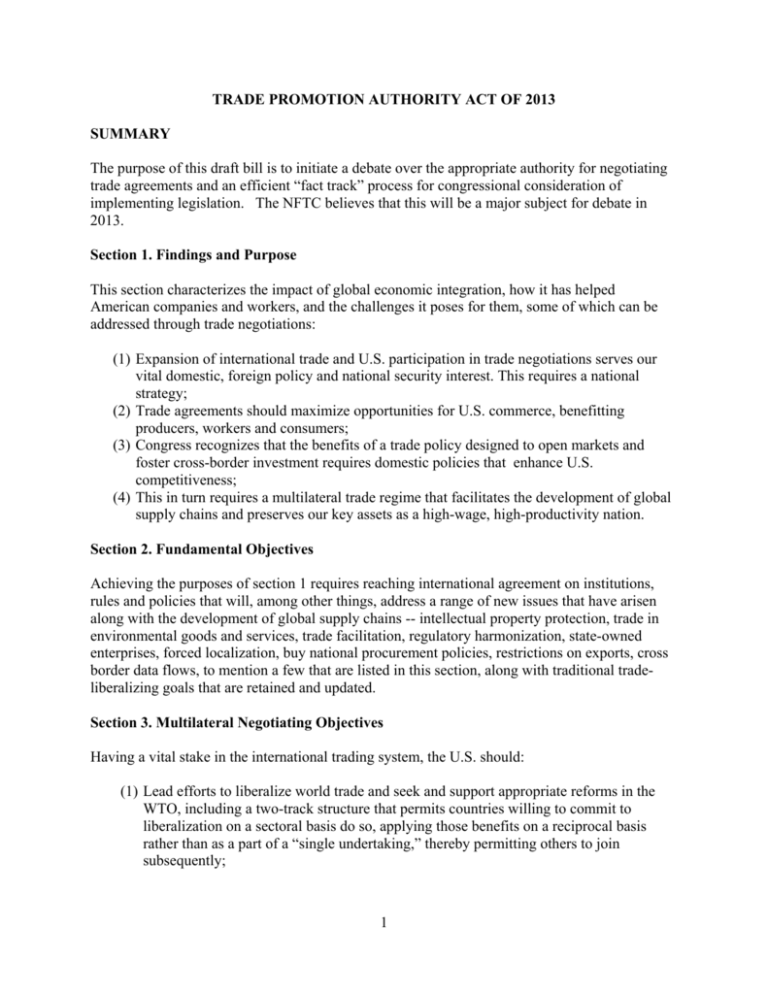
TRADE PROMOTION AUTHORITY ACT OF 2013 SUMMARY The purpose of this draft bill is to initiate a debate over the appropriate authority for negotiating trade agreements and an efficient “fact track” process for congressional consideration of implementing legislation. The NFTC believes that this will be a major subject for debate in 2013. Section 1. Findings and Purpose This section characterizes the impact of global economic integration, how it has helped American companies and workers, and the challenges it poses for them, some of which can be addressed through trade negotiations: (1) Expansion of international trade and U.S. participation in trade negotiations serves our vital domestic, foreign policy and national security interest. This requires a national strategy; (2) Trade agreements should maximize opportunities for U.S. commerce, benefitting producers, workers and consumers; (3) Congress recognizes that the benefits of a trade policy designed to open markets and foster cross-border investment requires domestic policies that enhance U.S. competitiveness; (4) This in turn requires a multilateral trade regime that facilitates the development of global supply chains and preserves our key assets as a high-wage, high-productivity nation. Section 2. Fundamental Objectives Achieving the purposes of section 1 requires reaching international agreement on institutions, rules and policies that will, among other things, address a range of new issues that have arisen along with the development of global supply chains -- intellectual property protection, trade in environmental goods and services, trade facilitation, regulatory harmonization, state-owned enterprises, forced localization, buy national procurement policies, restrictions on exports, cross border data flows, to mention a few that are listed in this section, along with traditional tradeliberalizing goals that are retained and updated. Section 3. Multilateral Negotiating Objectives Having a vital stake in the international trading system, the U.S. should: (1) Lead efforts to liberalize world trade and seek and support appropriate reforms in the WTO, including a two-track structure that permits countries willing to commit to liberalization on a sectoral basis do so, applying those benefits on a reciprocal basis rather than as a part of a “single undertaking,” thereby permitting others to join subsequently; 1 (2) Encourage the WTO to adopt stricter rules about the scope of obligations assumed in free trade agreements that enable them to qualify as an exception to MFN obligations and harmonize the rules in those agreements; (3) Seek to harmonize the many different rules contained in bilateral and regional trade agreements. Section 4. Regional and Bilateral Negotiating Objectives Regional and bilateral trade agreements can reinforce the multilateral system if they: (1) Give priority to those countries at comparable levels of economic development with the greatest potential for expanded commerce and which have the capacity to implement those agreements; (2) Give priority to agreements with prospects of progress in new areas of negotiation such as investment, regulatory policy, environmental protection, expansion of competition, improved labor standards, and product and food safety; (3) Promote harmonization of existing free trade agreements and the negotiation of rules of origin and other measures to minimize conflict; (4) Ensure that the negotiation of FTAs to which the U.S. is not a party do not discriminate against American trade and investment. Section 5. Trade Agreements Authority This section extends trade negotiating authority through June 1, 2018, with further five year extensions at the President’s request subject to the same Congressional disapproval process in the now-expired law. Other existing procedures and reporting requirements are continued. Section 6. Consultations and Assessment This section details the steps the President must take to launch a negotiation. With respect to the reports and notifications required prior to entering into a negotiation, during a negotiation, and subsequent to reaching an agreement, there are only conforming changes from previous law. Section 7. Implementation of trade agreements This section prescribes the procedure for Congressional consideration of a trade agreement implementing bill once an agreement is concluded, the so-called “fast track” process. The draft bill does not materially change the existing process except that with respect to TPP negotiations it specifies that “fast track” procedures will not apply unless the President notifies Congress of an agreement within one year of the date of enactment of this bill. Section 8. Congressional Oversight of Trade Policy The bill directs the two committees of primary jurisdiction, Ways and Means and Finance, to develop a plan, under their leadership, for broad and deep consultation with Members who do 2 not serve on those committees. Such plan shall be submitted to the House and Senate and, if approved, become part of the rules of each body. Section 9. Additional implementation and enforcement requirements Section 10. Application of certain provisions Section 14. Definitions These sections contain a number of miscellaneous provisions that are not significantly changed from previous law. Section 11. Establishment of Office of Trade Analysis This section creates an Office of Trade Analysis, the main purposes of which are to collect and analyze information on the trade policies and practices of foreign nations that provide them with competitive advantages or creat barriers to our goods and services, develop information that will facilitate USTR and other agency enforcement activities, and prepare an annual Assessment ofmthe Standing of the U.S. in thr Global Economy. $2 million is authorized for this office for each of the next four fiscal years. Section 12. Trade Liberalization Petition Process This section creats a petition process for seeking the removal or modification of U.S. nontariff trade barriers, subject to certain limitations. The USTR may accept or reject petitions. Acceptance triggers a 180 day consultation and review process ending in a recommendation to the President. There is no requirement that the President take action. Section 13. Miscellaneous Provisions. Provisions are added defining more clearly the criteria for individuals to be appointed to advisory committees, including that filing under the Lobby Disclosure Act shall not be grounds for ineligibility. Additional Authorities to be added The draft bill also proposeadobe additional item which has not been put in legislative language: 1) Provide authority for “fast track” approval of changes in existing bilateral/regional agreements that are made solely for purposes of harmonization pursuant to section 4(b)(3) of the draft bill. 3
